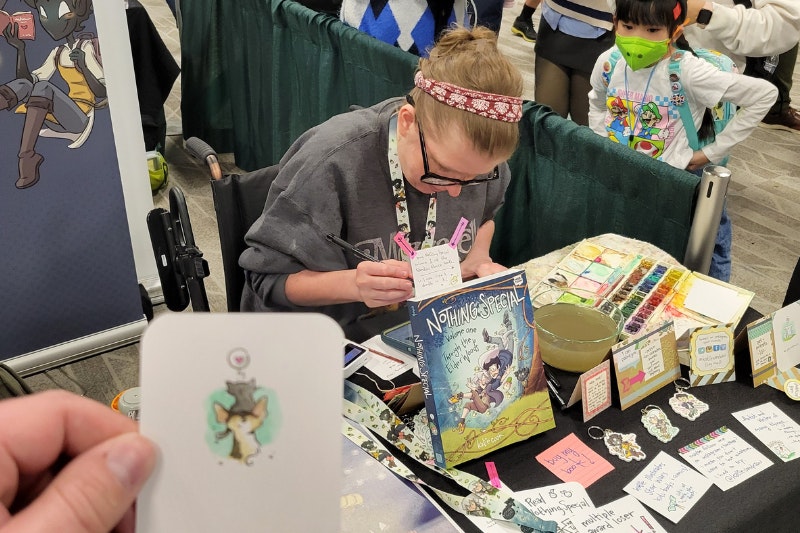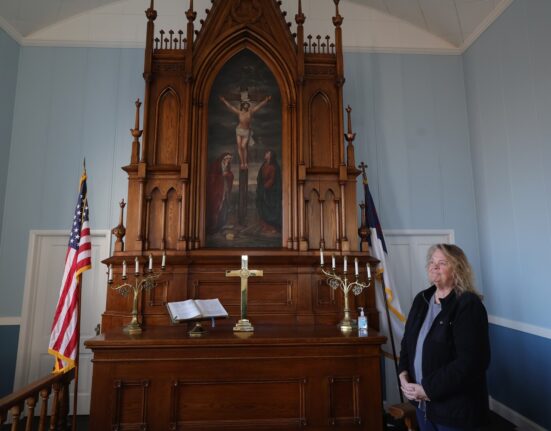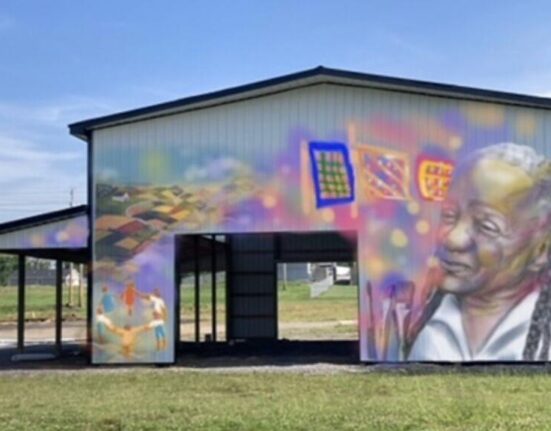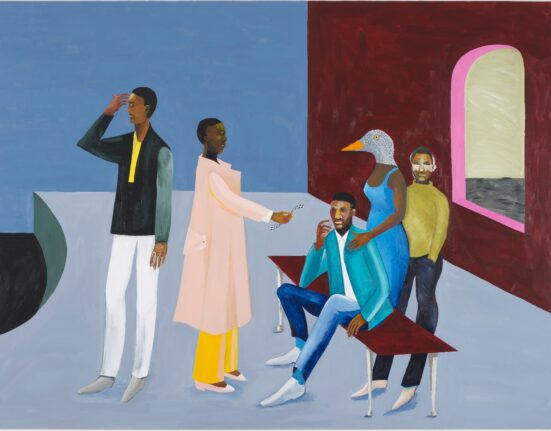Is the art that you admire the work of a human brain and heart, or is it the product of millions of data points and pattern prediction? It’s a question art fans increasingly have to ponder as generative AI programs continue to make rapid advances. It’s also a question that human artists at pop culture events, like Seattle’s Emerald City Comic Con, are discussing.
RELATED: The (economic) force is strong with Emerald City Comic Con in Seattle
For many creatives, there’s an unease at the prospect that their skills and livelihoods could soon be vulnerable — replaced by computers. AI art is already available via commonly used online services, such as ChatGPT, Canva, and Sora. In the world of comic artists, creators say the computer creep is already happening.
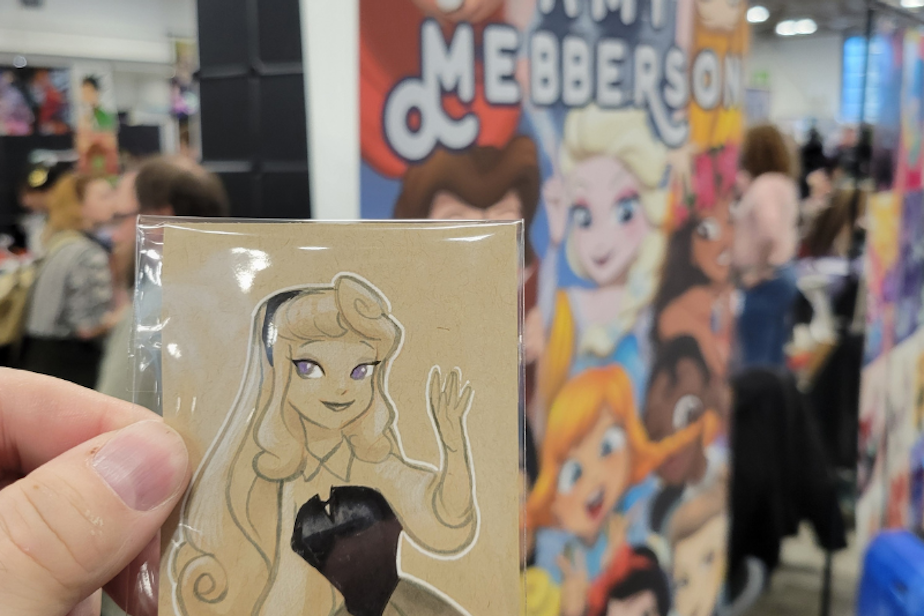
Lauren Walsh is an illustrator from Philadelphia. She has done work for Dungeons & Dragons, Disney’s card game Lorcana, and her own characters such as Woubble, the friendly gelatinous cube. All her work was recently on display at Emerald City Comic Con’s Artist Alley, where artists show off their skills, sell original work, and make a living. Walsh is concerned that companies will see AI art as an option to save money and increase profits, and in turn, use human artists less and less.
It’s never been easy to make a living in the art scene, but Walsh said that the folks starting out now have an even more difficult road ahead.
“The path that I took to get where I am, no longer exists,” Walsh said. “A lot of the people behind me who are trying to get where I am now have a much harder job, because a lot of those smaller publishing things, little odd jobs that you find, are now being replaced with gen AI.”
One solution many artists favor is legislation — protections for creatives and artists.
“I’d like it to be legislated that you can’t just scrape anything off the internet to create the software,” said Nick Jizba, an Omaha-based artist and vendor at Artist Alley. “I think it all has to be opt-in just because you might miss the opt-out check mark on a lot of software. There have definitely been times where it’s felt like that opt out has been hidden.”
The idea of metadata included in image files (information coded into online pictures), or watermarks on the images themselves, are also part of this conversation among artists.
Meta (the parent company of Facebook) announced last month that it is working on adding labels to AI-generated images on Facebook, Instagram, and Threads. It’s still an uphill battle with so many images being generated outside of the system, but posted on social media outlets.
RELATED: Seattle’s Emerald City Comic Con was an overwhelming joy for this budding fan
Not everything is doom and gloom, however.
Katie Cook is a comic book writer and artist from Ann Arbor, Michigan. She has worked on “My Little Pony,” “Star Wars,” and her own comic, “Nothing Special.” She pointed out that AI generators don’t have the ability to make little tweaks that clients might request.
“I’ve already heard of instances from different editors where they figured out that the artist they had picked up was using AI because they said, ‘Hey, can you change this for the client?’ And they’re like, ‘Actually, I can’t. I can’t do that for you’.”
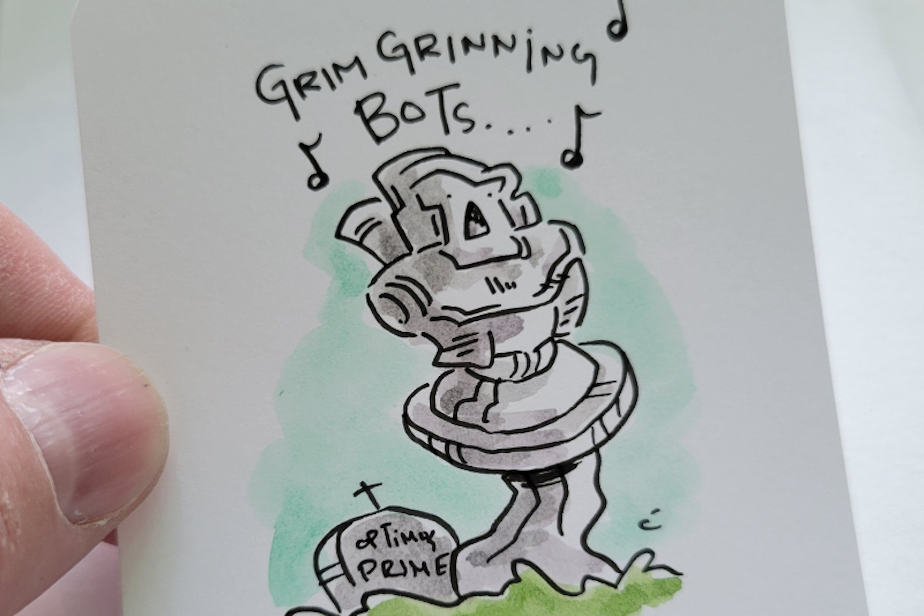
Jim Zub minced no words about using a computer to come up with artwork.
“I’m confused about the desire to have computers make the fun things, and make sure that people are continuing to do the drudgery,” Zub said.
Zub has done nearly everything in the comic book industry, from writing to drawing. He also teaches an art and animation program at a university in Toronto, Ontario. For him, the digital revolution has provided wonderful tools to make the job of getting art to the masses easier. Still, there’s something magical about seeing something you know came from the imagination of a person.
“I’ve always loved the visceral quality of physical art,” Zub said. “There’s something so intrinsically wonderful about seeing physical marks on medium, on paper, paint on Masonite, and knowing that those marks can be made by a person’s hand.”
How does Emerald City Comic Con handle AI art?
For such artists, pop culture events like Emerald City Comic Con play a big role in how they make a living. An Emerald City Comic Con spokesperson noted that organizers already have an AI policy for its vendors.
“We directly prohibit the sale of material or artwork produced by tracing or use of artificial intelligence, and that restriction is included with the rest of the guidelines provided during our application process for an Artist Alley table.
We review every individual’s application (we require website/portfolio of work to be included in the application), and we are able to quickly decline anyone whose art is heavily traced or utilizes AI.
Once we are onsite and set-up is complete, we walk Artist Alley to ensure that everyone is following our guidelines, and take the appropriate action needed for those not adhering. Our Artist Alley rules are very clear, and are provided during the application process and then once again to all approved individuals leading into the show.
In 2023, we received a handful of applications from individuals utilizing AI, which we declined per our guidelines, and have not seen a significant increase so far in 2024.
We believe that AI-generated art does not fit in our shows, just like traced art, and will continue to prohibit it.”
You can listen to Soundside’s entire conversation between host Libby Denkmann & producer Jason Megatron Burrows by clicking the play button above.
If you want to weigh in on how AI is already changing art, including something that you’re excited about (maybe you’re a creator who’s experimenting with generative AI and you want to share the cool potential that you see there) email us at soundside@kuow.org. Or you can leave us a voicemail at 206-221-3213.

